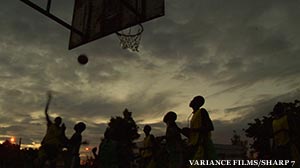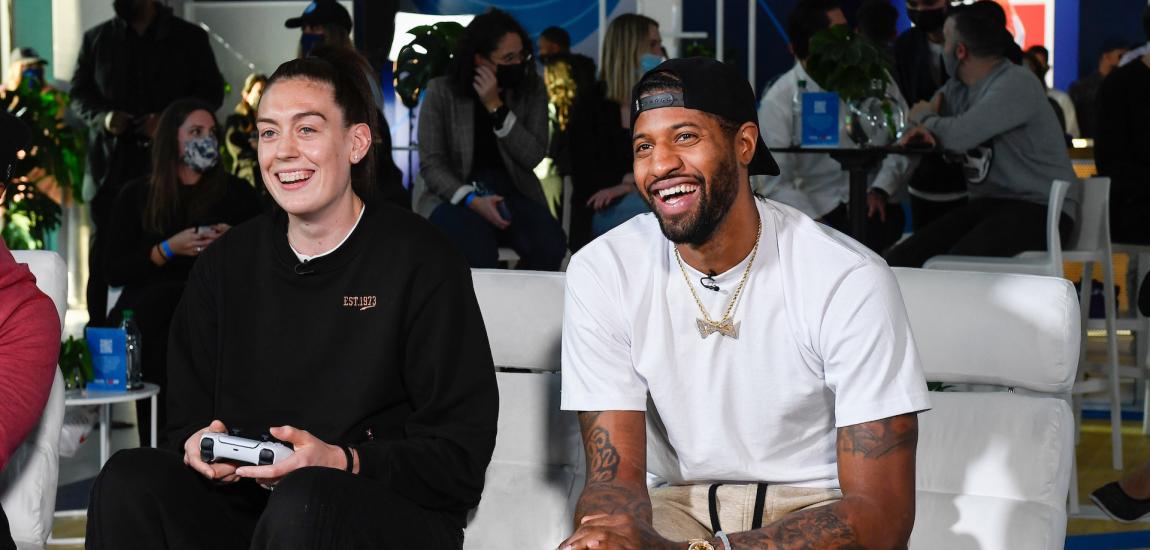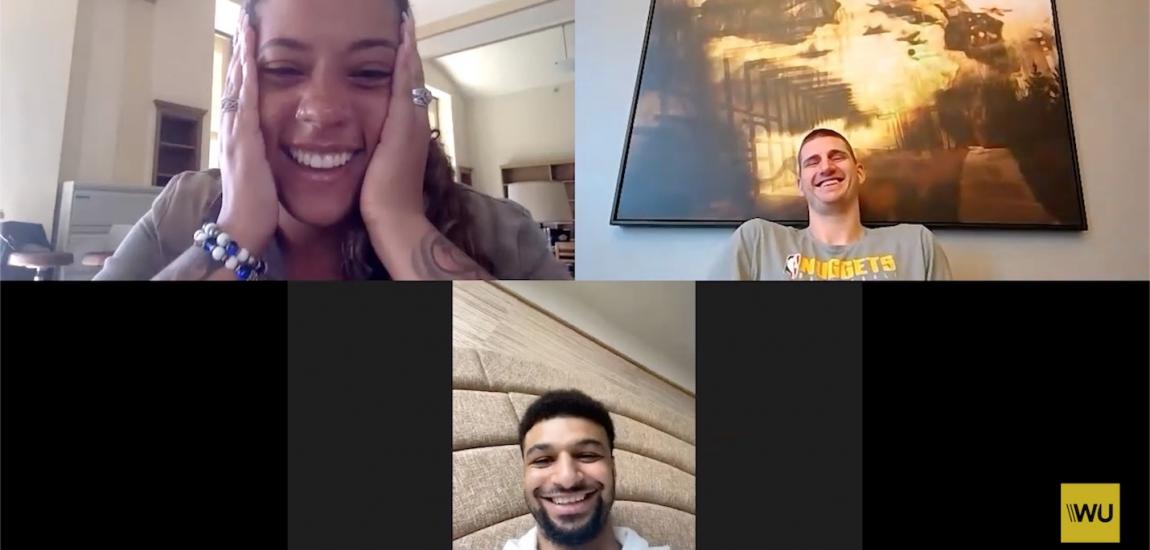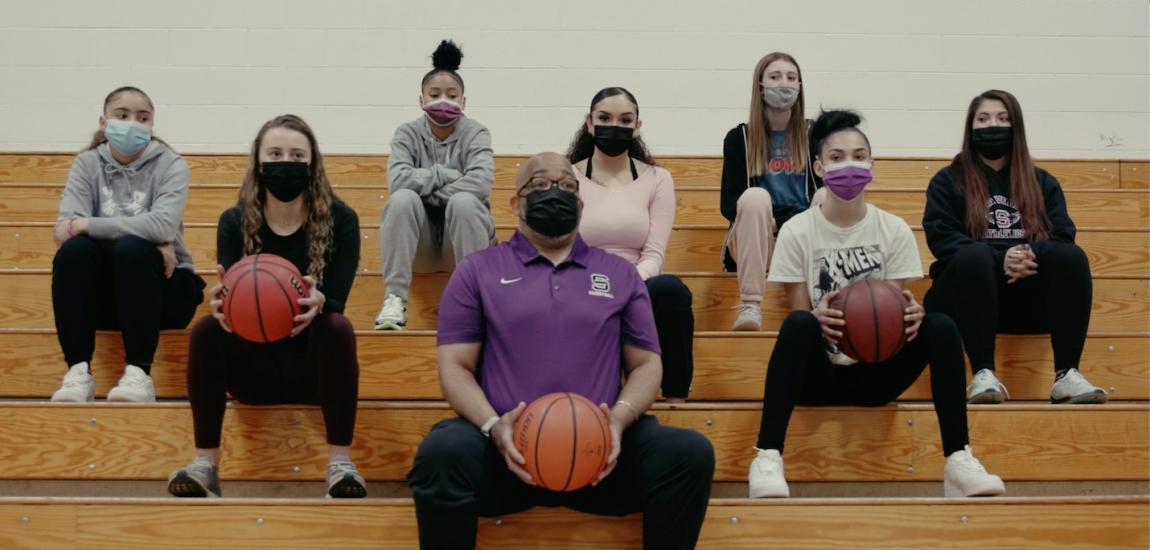The reason why the basketball documentary "Elevate" will resonate with viewers, sports fans or otherwise, is that first-time director Anne Buford doesn't feel the need to clobber them over the head with a sack full of emotional doorknobs.

The premise is simple. In 2003, Amadou Gallo Fall, then the VP of international affairs for the Mavericks, founded SEEDS Academy, a non-profit school in Senegal. Its goal was to develop teens as students and as basketball players so they could get placed at a U.S. prep school and hopefully earn a college scholarship. "Elevate" follows four boys -- Assane, Dethie, Byago and Aziz -- as they learn the game in the sparse conditions of Senegal and then adapt to the world of blazer-and-tie prepsters on stately campuses in the U.S.
Their stories are rich, nuanced and powerful. Less is more when it comes to telling them.
"Some people say, 'Why didn't you do more of this or do more of that?'" Buford says. "Well, the viewers need to make their own opinions."
Buford, whose background in fashion, politics and media includes helping launch Vogue.com during her 10 years at Conde Nast, was introduced to Fall by her brother R.C., the general manager of the San Antonio Spurs. R.C., along with team owner Peter Holt, gets an exec producer credit on the film, which opens Friday in New York and next week in Los Angeles before getting a wider release.
"I remember on my first trip to Senegal," she says, "it felt like Amadou had me by the shirt collar even though he didn't, and he looked me in the eye said, 'This school is not about pity. This is about hope and opportunity.' It still gives me chills when I think about it."
ThePostGame: "Hoop Dreams" is considered the gold standard for this sort of documentary. How is your film similar and how is it different?

Anne Buford: Steve James is a brilliant filmmaker, but I don't have the same aesthetic as him. I'm never going to be a dark filmmaker. I saw this as something about hope and opportunity for the kids. When we were going through the film-festival circuit, people would say, 'Your film doesn't have the guns of an African film and it doesn't have LeBron James.' There was a film about LeBron and the guys he grew up with in Akron a couple years ago and it was really good. Then there were African movies like 'Lost Boys of Sudan' and 'God Grew Tired Of Us.' But my aesthetic is not that dark. So I would never have an affinity to make films like that. I want my films to be inspiring, to show you things you might not see in a lot of cases. I want to see something that might give me a new way of thinking.
TPG: Originally your plan was to focus just on the SEEDS Academy. How did the film evolve beyond that to follow the four players to America?
Buford: I was never really thinking about any of the boys coming to America. But when that happened, we had the idea to see what it would be like if we continued to follow them. They go from this controlled environment where they feel comfortable, and you take them somewhere where everything becomes hard. That's when it became really hard to shoot the boys.
TPG: But their struggles lend to the narrative of the film because without conflict, it's not as compelling.
Buford: I guess I was naive and didn't realize how hard it would be for them. I saw how people reacted to Assane. They'd say to him, 'You're really lucky to be here.' Their inclination really wasn't to say, 'Oh my gosh, this must be so hard.' Sometimes they forget they're dealing with kids. That's one of those things that as a
filmmaker, you really don't know what you're going to get until you start.
I got to know them even though I couldn't speak French and still can't, because you had to tell the story with people who had to take a leap of faith with you. You know at some point they had to be thinking: 'This is really hard. It's cold. It's Connecticut in the winter. This isn't any fun. Why are we doing this?' But the boys really wanted to keep doing it because of SEEDS. They want people to know about their school and that there are great kids coming out of the school.
TPG: One of the players talks about being a soccer buff and how he was skeptical, almost dismissive about basketball, until his cousins persuaded him to try. Where is basketball in the pecking order of sports in Senegal?
Buford: It's all soccer. The guys know the NBA because of Amadou and the Mavericks, and the NBA scouts who go over with shirts donated by the teams. But they don't know about colleges. They really don't understand exactly what they're getting into when they come over to go to high school like with the recruiting. They didn't know they were going to have the opportunity to get scholarships in America when they were young. It was really beyond their ability to comprehend. But they know everything about soccer like we know about American basketball or football or baseball teams. The African championships for soccer are national holidays.

TPG: Players like Kobe Bryant and LeBron James have a global fanbase, but who are some of the other NBA players that are pretty popular in Senegal?
Buford: I was a little surprised because of their age that they knew who David Robinson was. Tim Duncan was one of their favorites, and I know with my brother working for the Spurs that it sounds self-serving to say that. They love Kevin Garnett. The big guys love the big guys. And Yao Ming because he was an international player. And of course Shaq.
TPG: The SEEDS Academy seems like the classic grassroots organization. Is there any concern that it is vulnerable to outfits like the sneaker companies that have co-opted AAU basketball in the U.S.?
Buford: The academy doesn't get as much support as you would think. This school is touch and go a lot of the time. That's the shocking thing to me is that there isn't more financial support going their way. It was through Quin Snyder's foundation that they were able to get computers.
TPG: Your first job after graduating the University of Kansas was being a personal assistant for Anna Wintour, the legendary editor of Vogue. We'd be remiss if we didn't ask you to share a memory of that experience.
Buford: There was one time when we were making a list of something, and someone said, 'Well, why shouldn't that person be included?' Somebody else said, 'Well, they're hired help.' I was explaining this to Anna, and she said to me, 'Anne, we're all hired help.' Brilliant. Everybody is the same, and that's how I look at the world. A
Director Anne Buford Tells Powerful Story Of Senegalese Basketball Youths In 'Elevate' Slideshow
TPG: So basketball is really the common bond here?
Buford: When I was in college, Larry Brown was the coach at Kansas and I found him to be a real fascinating character. Alvin Gentry and Ed Manning were his assistants, and my older brother was too. You take all these people with these varied backgrounds and you get them talking about basketball, and it's like they speak this same language. It's English but not really English. That's where I began my fascination with coaches and sports and people in sports.
On my first trip to Senegal, it's a plane full of NBA scouts who were going to teach at a camp that Amadou was running. Billy Bayno, who'd been a grad assistant at Kansas, was the first person I saw once I got on the ground. Having known Billy when I was at school and being able to juxtapose Billy in Africa teaching was an incredible gift I'd been given. The Billy I knew was not this Billy. I saw how teaching kids in Africa really changed him.

Popular Stories On ThePostGame:
-- NBA Announcer Chris Carrino: My Battle Against FSHD Muscular Dystrophy
-- Coach Bans Of Twitter Prove College Sports Isn't About Education
-- Greatest NBA Trios
-- Billy Donovan's Secret Sorrow














